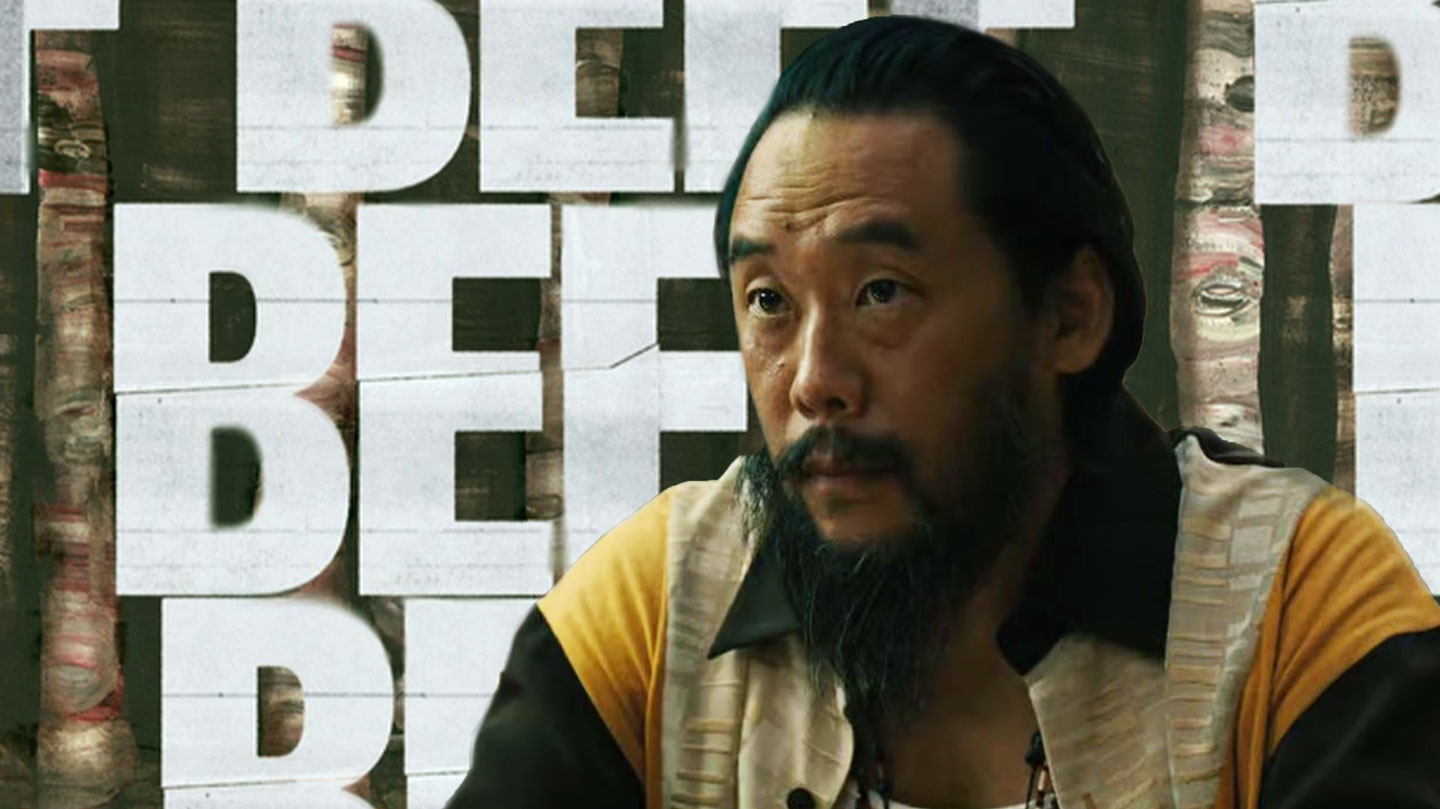After clips of his problematic comments resurfaced on social media, the actor attempted to silence his accusers by reporting the content for ‘copyright infringement’
“I’m a successful rapist.”
These are the words of Beef actor David Choe, who admitted to sexually assaulting a woman on air in 2014. In the clip, which originally appeared on his former podcast DVDASA—an acronym for Double Vag, Double Anal, Sensitive Artist—Choe describes the time he forced a masseuse to perform oral sex on him without her consent. And yet, despite the fact that this information has been publicly available for years, Choe is starring in one of the most popular shows on Netflix.
When I saw his name in a description of Beef—the now-viral A24 series starring Choe, alongside superstars Ali Wong and Steven Yeun—I did a double take. I’ve been familiar with the actor’s problematic comments for years, having witnessed the backlash within the New York art scene in 2017, when he was hired to paint the Bowery Wall, a prestigious street art location owned by Goldman Global Arts. I even participated in “No Means No,” a protest-slash-performance piece, in which people banded together to paint over his mural. That was six years ago, during the Trump presidency, and a lot’s happened since then—but the fact that a self-proclaimed rapist is still receiving the benefit of the doubt from A24 and Netflix is nearly as upsetting as the clip itself.
“The fact that a self-proclaimed rapist is still receiving the benefit of the doubt from A24 and Netflix is nearly as upsetting as the clip itself.”
In light of Beef’s breakout success, Choe’s history has once more been brought to the fore, with social media campaigns urging the show’s creators to speak out, including the Twitter movement to #BoycottBeef. That is, until Choe tried to silence his accusers by reporting the content for copyright infringement via his nonprofit, which apparently owns the rights to the podcast where the clip first aired. Despite obvious conflicts of interest, Twitter complied with the requests, serving Choe’s detractors—many of whom posted the clip to raise awareness—with takedown notices, or banned their accounts altogether.
When this footage first surfaced years ago, Choe faced widespread criticism online, and promptly decided that he wasn’t a rapist after all; he addressed the backlash in a statement, in which he claimed to “hate rapists, and think rapists should be raped”—which, I think we can all agree, is definitely not something a rapist would say.



















